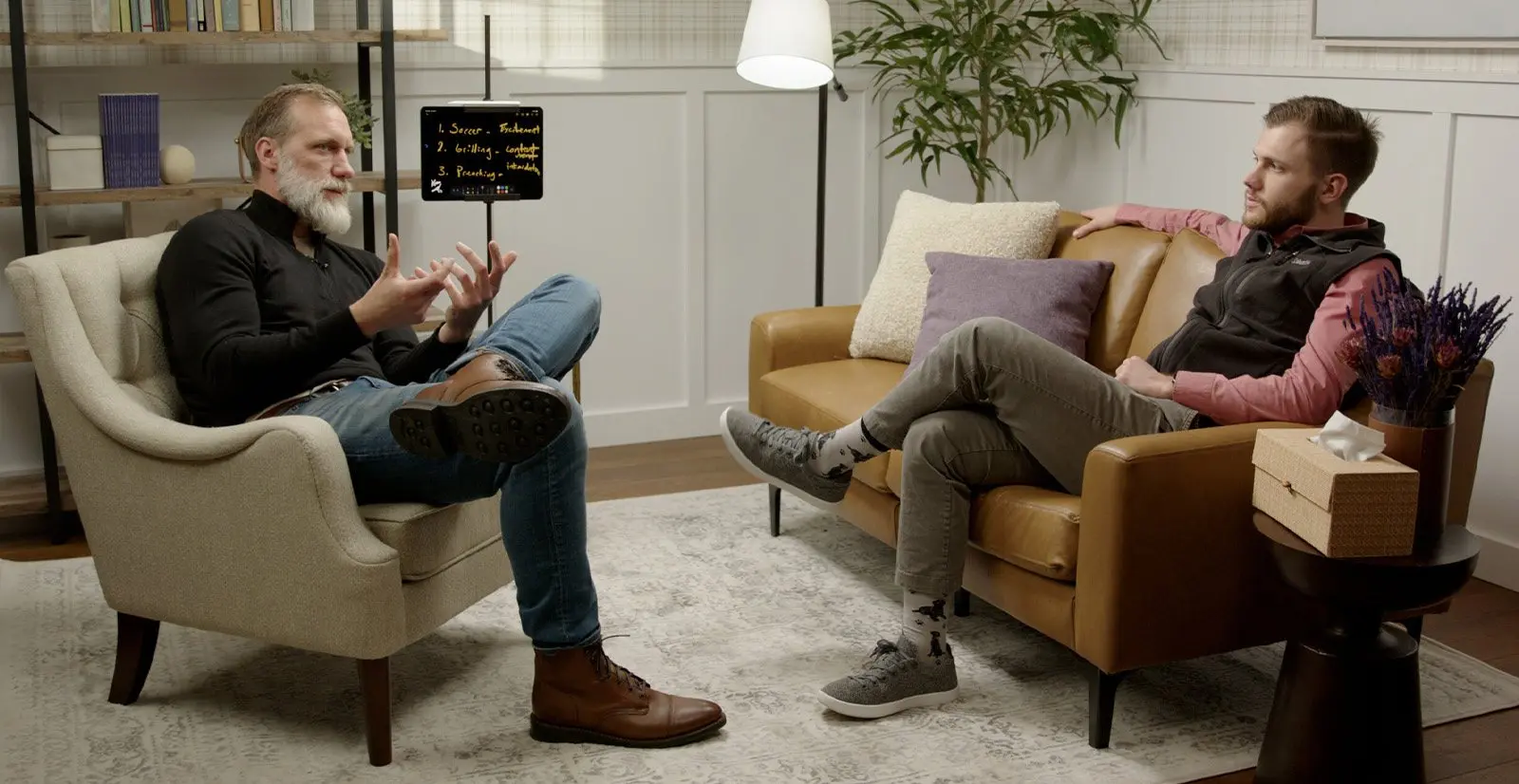Transcript
I think it'd be really important to understand how counseling was a negative experience in the first place. As a counselor, it's pretty common for us to hear that a person who's in counseling with us today had a negative or a difficult experience in a previous counseling experience. And it would actually be pretty naive for me to think that people that I've counseled haven't had difficult or negative experiences, right? So when I come to this question, I approach it with a bit of humility and sobriety, and typically I'll ask a person who's in counseling to share things about that experience so that I can make sense of what happened. And oftentimes they're legitimately difficult situations. So a few examples. One time I was working with a couple where the husband said, the only time that I was in counseling previously was for one session, and it was in my first marriage. And although my wife invited me into counseling and couched the counseling with, let's work on our marriage, let's work on our relationship together, actually what she did was to use that one and only session as a place to leave her husband, to say, I'm done, and to separate and divorce him. So you can imagine how that experience was for him. For the first probably three or four sessions, he was guarded and on edge. That was challenging for him.
Or I remember another marriage counseling situation where the husband in the first session said, and he was coming to counseling for the second time with his wife, and he said, “I work out of town, and so I'm here for a week, then I'm working for a week, then back for a week. And so in the marriage counseling that I engaged with, with my wife, the counselor would meet with my wife in the weeks opposite the times that we were doing marriage counseling. And come to find out later, every time the counselor would meet with my wife, she was actually encouraging her to leave me, to separate from me and essentially to be done with our marriage.” So that was a negative experience, and it makes sense.
One time I was working with a woman who, in her previous counseling with her husband, what was on the table was her husband's use of pornography. And he had used pornography chronically throughout their marriage. And her counselor told her that every man struggles with pornography and that it was her responsibility to provide sex to her husband to keep him from temptation.
Wow, these were powerfully negative experiences for each of these people, and they're legitimate, right? These are all legitimately bad counseling experiences, and I, if I were in these situations, would be tempted not to trust counselors. But on the other hand, let me say, someone may say they had a negative counseling experience, but the counselor in fact actually was quite good, may have been very skillful and wise in the counseling. And so it's my habit to whenever I sit down with a person for the first time, is to ask about those counseling experiences, in the first session most of the time. Because the negative experience, and as a person describes what happened or what didn't happen, may have more to say about the person seeking counseling than merely being about the poor quality of the counseling. And the reason why I ask people that I'm counseling is to really understand and gain a deeper understanding of how this person handled a difficult counseling experience. And I'm wanting not to repeat that experience. I don't want to replicate that in our counseling together. And maybe even from time to time to encourage this person to return to their previous counselor because there's unfinished things that need to be done there.
The reality is counseling is a relationship. In other words, it's a two-way street, and some counseling relationships are better fits than other relationships. It's okay to acknowledge this. Now, you're probably not a counselor, but when your friend shares with you that they had a difficult counseling experience, don't take at face value that it was just the counselor or just them. You really need to ask more questions. So the most important thing is for you to understand how this counseling experience was a negative one. Once you feel like you have a good grasp on what happened, offer to help your friend find a new or a different skillful and experienced, a godly and wise biblical counselor. Counseling is built on trust. Who would you send your closest friend or your closest family member to? Offer maybe to go to counseling with him or her for the first meeting or maybe for the duration of counseling. And if it's appropriate, encourage them to tell their counselor early on in the conversation about what happened to help ensure that counseling starts off on the right foot.



